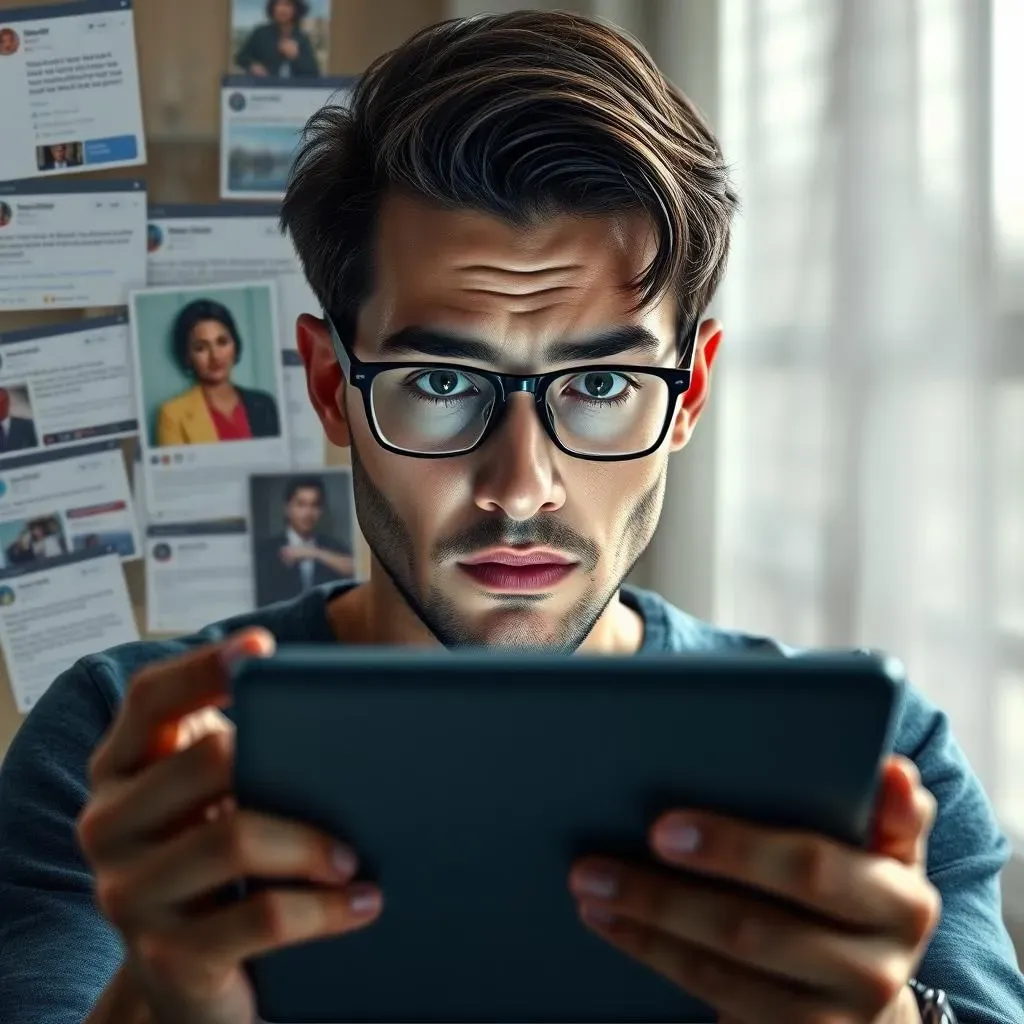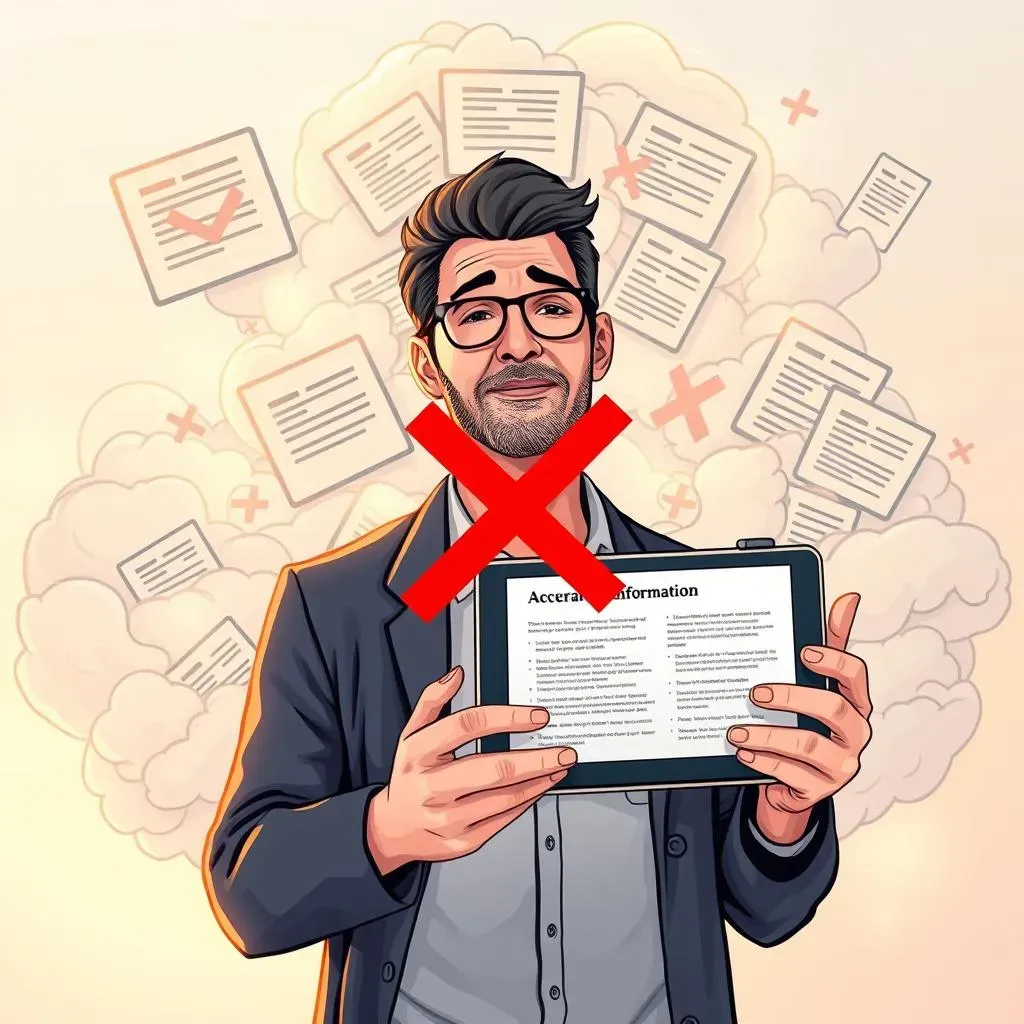Table of Contents
In today's digital age, where information spreads at lightning speed, celebrities wield immense influence, shaping opinions and behaviors across various domains, including health. Unfortunately, this influence isn't always used responsibly. Many celebrities promote unproven remedies, questionable diets, and outright false health claims, contributing significantly to the problem of celebrity health misinformation. This article dives into the world of celebrity health misinformation debunking, providing you with the tools and knowledge to navigate this complex landscape. We'll explore the alarming rise of misleading health information spread by famous figures, examining the tactics used and the devastating consequences. Then, we'll equip you with practical strategies for effective celebrity health misinformation debunking, empowering you to discern fact from fiction. Finally, we'll discuss the broader impact of this issue and explore potential solutions for a healthier, more informed future. By the end, you'll be better prepared to critically evaluate health information, regardless of its source, and contribute to a world where accurate health information prevails. Get ready to become a champion of celebrity health misinformation debunking!
The Rise of Celebrity Health Misinformation

The Rise of Celebrity Health Misinformation
The Power of Celebrity Endorsement
Let's face it: celebrities have a massive reach. Their words and actions carry significant weight, influencing millions of fans worldwide. This influence extends to health and wellness, where many look to their favorite stars for advice and guidance. Unfortunately, this trust is often exploited. Celebrities, sometimes knowingly, sometimes unknowingly, promote products and practices lacking scientific backing, leading to widespread misinformation.
Think about it – a famous actor advocating for a "miracle" detox tea, a pop star promoting a restrictive diet, or a fitness guru pushing supplements with questionable ingredients. These endorsements often lack any real scientific evidence, yet their impact is enormous. The sheer charisma and perceived authority of celebrities make their claims incredibly persuasive, even when those claims are entirely unfounded. This creates a fertile ground for the spread of dangerous and misleading health information.
Celebrity | Product/Practice | Misinformation Spread |
|---|---|---|
Example Celebrity 1 | Detox Tea | Claims of rapid weight loss and detoxification; lack of scientific evidence. |
Example Celebrity 2 | Specific Diet | Promotes unsustainable restrictions; potential for nutritional deficiencies. |
Social Media's Amplifying Effect
Social media platforms have exponentially amplified the reach of celebrity health misinformation. A single Instagram post from a celebrity can reach millions in a matter of hours, spreading false claims far and wide. The algorithms of these platforms often prioritize engagement, meaning sensational and controversial health claims—even if false—tend to go viral quickly. The lack of robust fact-checking mechanisms on many platforms only exacerbates this problem.
Moreover, the interactive nature of social media allows for rapid dissemination of misinformation. Comments, shares, and retweets quickly transform a single misleading post into a widespread phenomenon. This creates echo chambers where false claims are reinforced and amplified, making it challenging to correct the misinformation once it's taken hold. The speed and scale of this spread make it incredibly difficult to combat effectively.
- Rapid dissemination via multiple platforms
- Lack of reliable fact-checking
- Algorithm prioritization of engagement
- Creation of echo chambers
Debunking Common Celebrity Health Myths: Techniques and Strategies for Celebrity Health Misinformation Debunking

Debunking Common Celebrity Health Myths: Techniques and Strategies for Celebrity Health Misinformation Debunking
Identifying Misinformation: Red Flags and Warning Signs
So, you're tackling celebrity health misinformation debunking? Fantastic! The first step is recognizing the red flags. Look for claims that sound too good to be true – rapid weight loss, miracle cures, and promises of overnight transformations are major warning signs. Be wary of endorsements lacking scientific evidence. Instead of relying on a celebrity's say-so, look for studies published in reputable journals. Beware of overly simplistic explanations that ignore the complexities of human health. A healthy lifestyle is a nuanced thing, not a quick fix! Finally, be suspicious of information lacking sources or credible references. If it's not backed by data, treat it with extreme skepticism.
Remember, credible health information comes from qualified professionals like doctors, registered dietitians, and other healthcare experts. Always cross-reference information from multiple reputable sources. Don't rely solely on social media or celebrity endorsements. A healthy dose of skepticism can save you from a lot of trouble! And remember, if it sounds too good to be true, it probably is.
- Overly simplistic claims
- Lack of scientific evidence
- Missing sources or references
- Unsubstantiated promises of quick results
- Reliance on anecdotal evidence
Effective Debunking Strategies: Tools and Techniques
Now that you can spot misinformation, it’s time to debunk it! One effective technique is to directly address the false claims with factual information from reliable sources. Present evidence-based counterarguments, citing scientific studies and expert opinions. This is where your research skills come in handy. You can also create concise, easily digestible infographics or videos to counter the misinformation visually. Use simple language, avoiding jargon that might confuse people. Think of it as translating complex medical information into a language everyone understands. This makes the information more accessible and easier to share.
Another important strategy is to focus on building trust and credibility. Clearly state your sources and expertise; emphasize the importance of critical thinking and independent verification. Encourage others to question information and to seek out diverse perspectives. Promote media literacy, teaching people how to identify and evaluate information critically. Remember, this isn't just about correcting misinformation; it's about empowering people to make informed decisions about their health.
Debunking Strategy | Description | Example |
|---|---|---|
Direct Counterarguments | Present evidence-based counterclaims. | "That detox tea claims to remove toxins, but the body has its own natural detoxification system." |
Visual Aids | Use infographics to present complex information simply. | Create a chart comparing the celebrity's diet to a balanced diet. |
Media Literacy | Teach people to evaluate information critically. | Share tips on identifying reliable sources and spotting red flags. |
The Impact of Celebrity Health Misinformation Debunking and Future Directions

The Impact of Celebrity Health Misinformation Debunking and Future Directions
Protecting Public Health
Effective celebrity health misinformation debunking is crucial for protecting public health. False claims can lead to people making poor health choices, delaying or forgoing necessary medical care, and even adopting dangerous practices. The consequences can range from minor inconveniences to severe health problems, even death. Consider the impact of false claims about vaccine safety – this misinformation has led to decreased vaccination rates and outbreaks of preventable diseases. Debunking these myths is not just about correcting facts; it's about safeguarding lives and well-being.
Furthermore, the spread of misinformation erodes trust in healthcare professionals and scientific institutions. When celebrities promote unproven remedies, it can undermine public confidence in evidence-based medicine. This can have long-term consequences, leading to increased skepticism about medical advice and decreased adherence to recommended treatments. Rebuilding that trust requires consistent and effective debunking efforts, coupled with transparent and accessible communication from healthcare providers.
Misinformation | Impact | Consequences |
|---|---|---|
False claims about vaccine safety | Decreased vaccination rates | Outbreaks of preventable diseases |
Promotion of unproven cancer cures | Delayed or forgone conventional treatment | Worse prognosis and reduced survival rates |
The Role of Social Media Platforms
Social media platforms bear a significant responsibility in addressing celebrity health misinformation. Their algorithms often amplify misleading content, and their lack of robust fact-checking mechanisms allows false claims to spread rapidly. Platforms need to implement stricter policies and invest in more effective fact-checking initiatives. This includes collaborating with health experts and using AI-powered tools to identify and flag misinformation more efficiently. They also need to be more transparent about their algorithms and how they prioritize content. Greater accountability on the part of social media companies is essential to curb the spread of harmful health misinformation.
Beyond stricter policies, platforms can actively promote credible health information. This could involve partnering with health organizations to create educational content and providing users with easy access to reliable sources. Highlighting accurate information alongside debunked claims can help to counter the spread of misinformation more effectively. This proactive approach, combined with stronger enforcement of existing policies, is crucial for creating a healthier online environment.
- Implement stricter policies on health misinformation
- Invest in more effective fact-checking
- Promote credible health information
- Increase transparency about algorithms
Future Directions: Collaboration and Education
Combating celebrity health misinformation requires a multi-faceted approach. Collaboration between healthcare professionals, researchers, educators, and social media platforms is essential. This collaborative effort can lead to the development of more effective strategies for identifying, debunking, and preventing the spread of misinformation. A key component of this is education—teaching individuals how to critically evaluate health information and identify red flags. This includes promoting media literacy skills and empowering individuals to make informed decisions about their health.
Looking ahead, we need to invest in research to better understand the psychology behind the spread of health misinformation and the effectiveness of different debunking strategies. This research can inform the development of more targeted and effective interventions. Ultimately, successful celebrity health misinformation debunking relies on a combination of technological solutions, policy changes, and widespread education. By working together, we can create a more informed and healthier society.